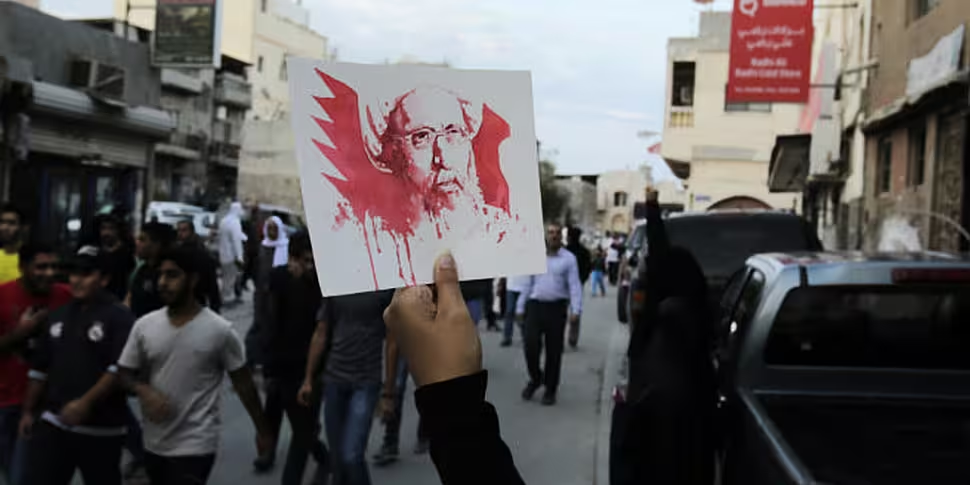Iran's supreme leader has said Saudi politicians will face "divine vengeance" over the execution of a prominent Shia cleric.
Nimr Al-Nimr was put to death in Saudi Arabia along with 46 other prisoners on Saturday.
The issue has threatened to further damage relations between the Sunni-ruled kingdom and its enemy Iran, which is a predominantly Shia nation.
Iran's supreme leader Ayatollah Ali Khamenei said: "The unjustly spilled blood of this oppressed martyr will no doubt soon show its effect and divine vengeance will befall Saudi politicians."
US officials have urged the Saudi government and other Middle Eastern leaders to "redouble efforts aimed at de-escalating tensions".
Protesters in Iran's capital, Tehran, attacked the Saudi embassy with petrol bombs in the wake of the executions.
Sectarian anger was also enflamed in eastern parts of Saudi, with hundreds of Shia Muslims marching through the streets.
Al Nimr, 56, was a driving force behind anti-government protests in Saudi during the Arab Spring of 2011 and Riyadh has insisted that the death penalties were part of a justified war on terrorism.
There have also been outbreaks of unrest in Bahrain, where demonstrators took to the streets, and in the eastern Iranian city of Mashhad, where the Saudi consulate was the scene of protests.
Iran is ruled by a majority Shia-led government and some of its politicians have warned that Saudi's monarchy will pay a high price for the killing of Al Nimr.
Meanwhile, former Iraqi prime minister Nouri al Maliki said the execution "will topple the Saudi regime".
The comments of high-profile Iranians prompted Saudi's Foreign Ministry to summon Iran's envoy to the kingdom, amid claims the criticism represented a "blatant interference" in its internal affairs.
A Saudi government spokesman later said: "The Iranian regime is the last regime in the world that could accuse others of supporting terrorism, considering that (Iran) is a state that sponsors terror, and is condemned by the United Nations and many countries."
The violent protests came despite an appeal by Al Nimr's brother for a "peaceful" response to the execution, who said his family did not want to see further bloodshed.
Executions
Most of those executed were detained after a series of attacks by al Qaeda between 2003 and 2006 in which hundreds of people were killed. Four, including Al Nimr, were Shias accused of shooting police.
All but two - an Egyptian and a Chadian - were Saudi nationals.
The executions took place in 12 cities across Saudi, with four prisons using firing squads and the others beheading.
The killer of Irish journalist Simon Cumbers is believed to be among those who were executed.
Cumbers, from Navan, died in Riyadh in June 2004 when he and his BBC colleague were attacked by terrorists linked to Al-Qaeda.
Last year, 157 people were put to death in Saudi Arabia, compared to 90 in 2014.
The mass executions have also been heavily criticised by human rights organisations and monitoring groups.
Philip Luther, Director of Amnesty International’s Middle East and North Africa Programme, said, “it is a bloody day when the Saudi Arabian authorities execute 47 people, some of whom were clearly sentenced to death after grossly unfair trials.
"Carrying out a death sentence when there are serious questions about the fairness of the trial is a monstrous and irreversible injustice. The Saudi Arabian authorities must heed the growing chorus of international criticism and put an end to their execution spree,” he added.









